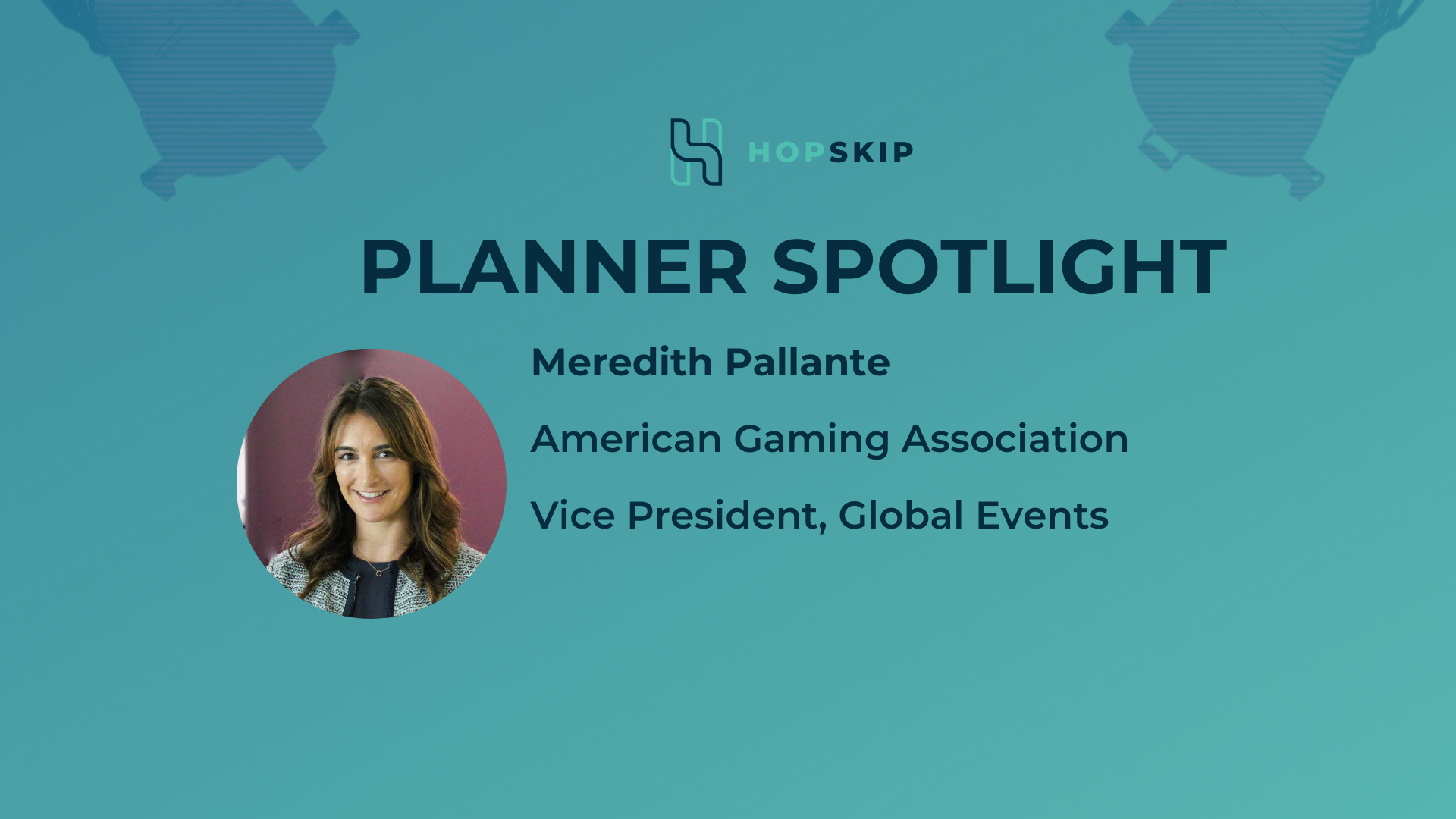Planner Spotlight Series- Meredith Pallante, American Gaming Association
Meredith Pallante, of the American Gaming Association, brings awareness of how they adapted to COVID-19, communicating and lessons learned and sharing how they are viewing the meetings and events industry in a post-pandemic world.

This post is part of the HopSkip Planner Spotlight Series where HopSkip spotlight's planners across the industry to bring awareness of how they adapted to COVID-19, communicating and lessons learned and sharing how they are viewing the meetings and events industry in a post-pandemic world.
Name: Meredith Pallante
Company Name: American Gaming Association
Job Title: Vice President, Global Events
Years of Experience: 13
- Connected with other trade show organizers and planners. I had phone calls, zoom dates and attended virtual roundtables with other events professionals to hear their stories and learn about the ways they were pushing forward.
- Focused on what I could control. I came to terms with that fact that I could not control the situation impacting my events, but I could control how I showed up, how I treated people, and how I served our members and industry. Understanding that our annual event would look different in 2020 allowed me and the AGA/G2E teams to innovate and tune into what our members and customers needed most: advocacy, education, and connection.
- Embraced innovation and change. In the past, webinars had been typically been a boring substitute to live events, and were usually reserved for more mundane topics. Over the past 16 months, webinars and virtual events have evolved and are now effective and efficient vehicles for content, engagement, and connection. One of the drawbacks of planning live events is the amount of lead time needed, but I found virtual events to be quite freeing, since they can be organized quickly and deliver tremendous value. I believe some of the event innovations we’ve embraced during the pandemic will stay with us well into the future.
This post is part of the HopSkip Planner Spotlight Series where HopSkip spotlight's planners across the industry to bring awareness of how they adapted to COVID-19, communicating and lessons learned and sharing how they are viewing the meetings and events industry in a post-pandemic world.